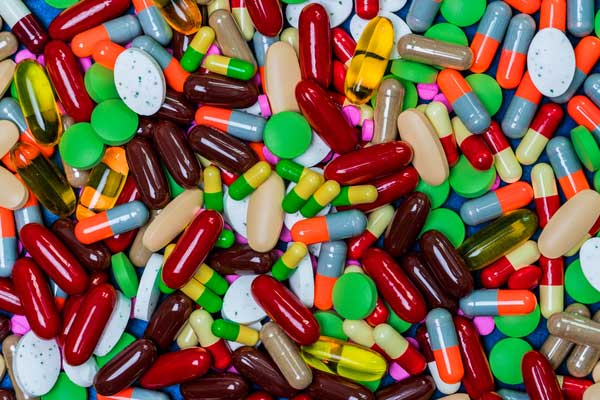Unveil the hidden dangers lurking in your medicine cabinet as we delve into the lesser-known but commonly used supplements that can pose a serious threat to your liver health. Hi, I’m your friendly pharmacist, and join us on this eye-opening journey to discover the facts and crucial tips as we focus on the top three supplements that can cause liver damage.

The Risks of Liver Damage:
In today’s age of abundant information on the internet, it becomes even more crucial to exercise due diligence and remain cautious about potential risks, especially considering the significant amount of non-evidence-based information circulating the web. Liver damage refers to any condition or situation where the liver’s normal function is compromised or impaired. It can range from mild inflammation to severe conditions like cirrhosis or liver failure. Symptoms of liver damage may vary depending on the severity but some common signs that you may suspect liver damage are fatigue and weakness, jaundice – yellowing of the skin and eyes, dark urine and pale stools, nausea, and vomiting. It’s important to know these signs because when you suspect liver damage or experience any of these symptoms when taking any supplements, you can seek medical attention promptly.
The Top Three Supplements to Watch Out For:
There are many supplements out there that can cause liver damage, but in this article, we are only going to focus on the top three supplements that are widely taken by many people.
1. Vitamin A: Vitamin A is a fat-soluble vitamin that plays a vital role in maintaining healthy vision, a robust immune system, and normal cell growth. It comes in two primary forms: retinol, found in animal products, and carotenoids found in the bright orange carrot that we all know. Normal doses of vitamin A are not associated with liver injury, but when too much vitamin A, especially in the form of retinol, is consumed, it can be toxic. Acute toxicity can be caused by a single or a few repeated very high doses, generally more than 100 times the recommended daily intake, arising within days to weeks. Chronic toxicity usually arises three months to many years after starting moderately high levels of vitamin A, generally 10 times the recommended daily intake. Because liver damage is not apparent straight away but rather creeps up on you, it is important not to take more than the recommended dosage.
2. Vitamin B3 (Niacin): Vitamin B3, also known as niacin, is a water-soluble vitamin that comes in two essential forms: nicotinic acid and nicotinamide. It is mainly metabolized in the liver and plays a role in converting food into energy, supporting heart health by helping to lower bad cholesterol (LDL) while raising good cholesterol (HDL), and also supporting skin health. Nicotinic acid is associated with liver damage when taken in doses above 3g per day. It is also more common with a sustained-release form of the drug compared to the immediate-release formulation. Since vitamin B3 is a water-soluble vitamin, most people think it will just be excreted out of the body, but it can cause liver damage. So, talk to your healthcare provider before starting vitamin B3, especially if you have any form of liver damage.
3. Green Tea Extract: Green tea extract is found in many herbal and dietary supplements and has gained popularity over the years for its antioxidant properties and its supposed ability to aid weight loss and prevent cancer. However, the antioxidant found in green tea extract, called EGCG, is known to cause liver damage when taken in excess. The upper tolerable limit for EGCG ranges from 300mg to 800mg per day. To be on the safe side, it is best recommended to stay on the lower limit and avoid taking green tea extract supplements altogether if you have liver problems.
Conclusion:
Today, we’ve focused on the potential risks and consequences of the top three supplements that can cause liver damage – vitamin A, vitamin B3, and green tea extract. It is crucial that we approach supplements with utmost caution and awareness. So remember to always do your research and consult with a healthcare professional before starting any new supplement, especially if you have pre-existing liver conditions or are taking other medications.
